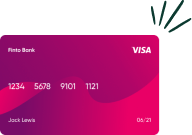
Personal finance is a continuous journey defined by the choices we make with our money. At the heart of this journey lies the powerful and often paradoxical relationship between credit and debt. While these two terms are frequently used interchangeably, they represent distinct concepts that, when managed wisely, form the cornerstone of financial health. Understanding this delicate balance is not merely a matter of arithmetic; it is a fundamental life skill that separates financial stability from perpetual struggle. Effective management transforms these tools from potential burdens into engines of opportunity.Credit is fundamentally about trust and access. It is the ability to borrow money or access goods and services with the promise of payment later. A strong credit history, built through consistent, responsible behavior, becomes a valuable asset. It unlocks lower interest rates on significant loans, improves chances of securing housing, and provides a crucial safety net during emergencies. Building good credit is an active process of demonstrating reliability, often starting with a single credit card or small loan and growing through a history of on-time payments and prudent borrowing.Debt, on the other hand, is the obligation that results from using credit. It is the actual amount of money owed. Not all debt is created equal; a mortgage for a home or a student loan for education is often considered "good" debt, as it invests in an appreciating asset or future earning potential. High-interest consumer debt from credit cards or
personal loans used for discretionary spending is typically "bad" debt that can quickly compound and become unmanageable. The central tenet of debt management is not necessarily elimination, but strategic control.The art of personal finance lies in harnessing the power of credit while rigorously managing the burden of debt. This requires a disciplined strategy. It begins with a budget that prioritizes essential expenses and debt repayment. Strategies like the debt avalanche method, which targets high-interest debts first, can accelerate progress. Simultaneously, responsible credit use must continue—keeping credit card balances low and making payments on time to maintain a strong credit score. This dual approach creates a virtuous cycle: good credit management leads to better loan terms, which makes debt easier to manage, further strengthening one’s financial position. Ultimately, mastering this balance empowers individuals to leverage debt as a strategic tool for building wealth, rather than being consumed by it as a source of stress.



 Personal finance is a continuous journey defined by the choices we make with our money. At the heart of this journey lies the powerful and often paradoxical relationship between credit and debt. While these two terms are frequently used interchangeably, they represent distinct concepts that, when managed wisely, form the cornerstone of financial health. Understanding this delicate balance is not merely a matter of arithmetic; it is a fundamental life skill that separates financial stability from perpetual struggle. Effective management transforms these tools from potential burdens into engines of opportunity.Credit is fundamentally about trust and access. It is the ability to borrow money or access goods and services with the promise of payment later. A strong credit history, built through consistent, responsible behavior, becomes a valuable asset. It unlocks lower interest rates on significant loans, improves chances of securing housing, and provides a crucial safety net during emergencies. Building good credit is an active process of demonstrating reliability, often starting with a single credit card or small loan and growing through a history of on-time payments and prudent borrowing.Debt, on the other hand, is the obligation that results from using credit. It is the actual amount of money owed. Not all debt is created equal; a mortgage for a home or a student loan for education is often considered "good" debt, as it invests in an appreciating asset or future earning potential. High-interest consumer debt from credit cards or
Personal finance is a continuous journey defined by the choices we make with our money. At the heart of this journey lies the powerful and often paradoxical relationship between credit and debt. While these two terms are frequently used interchangeably, they represent distinct concepts that, when managed wisely, form the cornerstone of financial health. Understanding this delicate balance is not merely a matter of arithmetic; it is a fundamental life skill that separates financial stability from perpetual struggle. Effective management transforms these tools from potential burdens into engines of opportunity.Credit is fundamentally about trust and access. It is the ability to borrow money or access goods and services with the promise of payment later. A strong credit history, built through consistent, responsible behavior, becomes a valuable asset. It unlocks lower interest rates on significant loans, improves chances of securing housing, and provides a crucial safety net during emergencies. Building good credit is an active process of demonstrating reliability, often starting with a single credit card or small loan and growing through a history of on-time payments and prudent borrowing.Debt, on the other hand, is the obligation that results from using credit. It is the actual amount of money owed. Not all debt is created equal; a mortgage for a home or a student loan for education is often considered "good" debt, as it invests in an appreciating asset or future earning potential. High-interest consumer debt from credit cards or 

